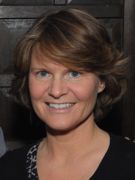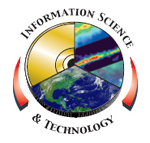
Please Note: The content on this page is not maintained after the colloquium event is completed. As such, some links may no longer be functional.
Bonnie Dorr
Department of Computer Science and Institute for Advanced Computer Studies
University of Maryland
Natural Language Processing: Challenges, Solutions, and Applications
Wednesday, May 8, 2013
Building 3 Auditorium - 11:00 AM
(Coffee and cookies at 10:30 AM)
With the availability of large monolingual and parallel texts, statistical natural-language processing systems (e.g., machine translation and automatic summarization) have proven to be quite successful on many different languages. However, these systems are still faced with several challenges due to the difficulty of incorporating linguistic knowledge, including problems associated with translation divergences and word-alignment mismatches. Several recent research developments in the field of natural-language processing have led to great improvements in the performance of human language technologies, bringing them to a level that has enabled researchers to proceed to the next set of challenges: dealing with unrestricted content and degraded or noisy media and signals and extracting meaning from language. This talk introduces several hybrid language processing models for translation and summarization, ranging from statistically filtered symbolic approaches to linguistically informed statistical models. Particular attention will be paid to "translation divergences," a significant challenge faced by developers of computational algorithms for alignment and translation. An important conclusion of this presentation is that human language technologies benefit from both the depth of linguistic-motivated approaches and the robustness of statistical/machine-learning techniques, especially in the face of new forms of communication (e.g., social media such as messaging and chat) where systems must handle informal language, dialectal inputs, and implictly conveyed information.
Dr. Bonnie Dorr is a Professor in the Department of Computer Science and Institute for Advanced Computer Studies at the University of Maryland, and has been on assignment as a program manager to the Defense Advanced Research Projects Agency since 2011 where she oversees programs that are a part of the Agency's investment in human language technology. She received her Ph.D. Degree in Computer Science, with a minor in Linguistics, from the Massachusetts Institute of Technology in 1990 and has been on the faculty at the University of Maryland since then. She is a leading researcher in the areas of semantically-informed machine translation, single- and multi-document summarization, and language understanding. She co-founded the Computational Linguistics and Information Processing (CLIP) Laboratory, where she served as its director for 15 years, and has carried out seminal work in cross-language divergence detection, summarization, machine translation, paraphrasing and automatic evaluation metrics. She was formerly Associate Dean of the College of Computer, Mathematical, Natural Sciences at Maryland and was a founding member of the Johns Hopkins Human Language Technology Center of Excellence (COE), where she served as Principal Scientist and leader of the Language Understanding project for two years. She has served on the Executive Council of the Association for Artificial Intelligence and on the Executive Board of the Association for Computational Linguistics (ACL). She is a Sloan Fellow, a NSF Young Investigator, a Maryland Distinguished Scientist, a NSF Presidential Faculty Fellow, and also served as Vice-President and President of the Association for Computational Linguistics.
IS&T Colloquium Committee Host: Nargess Memarsadeghi
Sign language interpreter upon request: 301-286-7040
ly discharged in 1994. He received the Air Force Achievement Medal in 1987.
IS&T Colloquium Committee Host: Paul Hunter
Sign language interpreter upon request: 301-286-8313
